I'm trying to implement sliding session expiration. I'm using Windows Azure ACS, .Net 4.5, WIF. When I first receive the token, what I'm doing is setting its default expiration time to 2 hours and write that token into cookie as shown in the code below:
internal void SetSession(ClaimsPrincipal principal)
{
var sessionToken = new SessionSecurityToken(principal, TimeSpan.FromMinutes(120));
FederatedAuthentication.SessionAuthenticationModule.WriteSessionTokenToCookie(sessionToken);
Thread.CurrentPrincipal = principal;
}
At this time, if I check the ValidFrom and ValidTo properties of the sessionToken variable, I get proper values as shown in the screenshot below:

Now to implement sliding session expiration, I am handling SessionAuthenticationModule_SessionSecurityTokenReceived event in my Global.asax file as shown below:
void SessionAuthenticationModule_SessionSecurityTokenReceived(object sender, SessionSecurityTokenReceivedEventArgs e)
{
var sessionToken = e.SessionToken;
}
However when I check the ValidFrom and ValidTo properties of the token, it's not what I set when I was writing the token as the cookie as shown in the screenshot below:

Not sure why this is happening. Can anybody please explain what I'm doing wrong.
UPDATE:
Here's one interesting thing I noticed. The way I've implemented sliding session is that I check token's ValidTo property and compare that with current date/time (in UTC). If the difference is less than 5 minutes, I increase the ValidTo time by 2 hours and reissue the cookie as shown in the code below:
void SessionAuthenticationModule_SessionSecurityTokenReceived(object sender, SessionSecurityTokenReceivedEventArgs e)
{
var sessionToken = e.SessionToken;
var currentDateTime = DateTime.UtcNow.Ticks;
var sessionExpirationDateTime = sessionToken.ValidTo.Ticks;
if (sessionExpirationDateTime >= currentDateTime)
{
var renewTokenWindow = 5 * 60 * 1000;//5 minutes
TimeSpan ts = new TimeSpan(sessionExpirationDateTime - currentDateTime);
if (ts.TotalMilliseconds < renewTokenWindow)
{
var newSessionTokenExpiry = sessionToken.ValidTo.AddMinutes(120);
//Renew token
SessionAuthenticationModule sam = sender as SessionAuthenticationModule;
var newSessionToken = sam.CreateSessionSecurityToken(sessionToken.ClaimsPrincipal, sessionToken.Context, sessionToken.ValidFrom, newSessionTokenExpiry, sessionToken.IsPersistent);
e.SessionToken = newSessionToken;
e.ReissueCookie = true;
}
}
}
Now after that if I check the value of ValidTo property in subsequent requests, it is actually honoring the value I'm setting as shown below. And this value gets persisted request after request i.e. once I reissue the token, everything works well.
